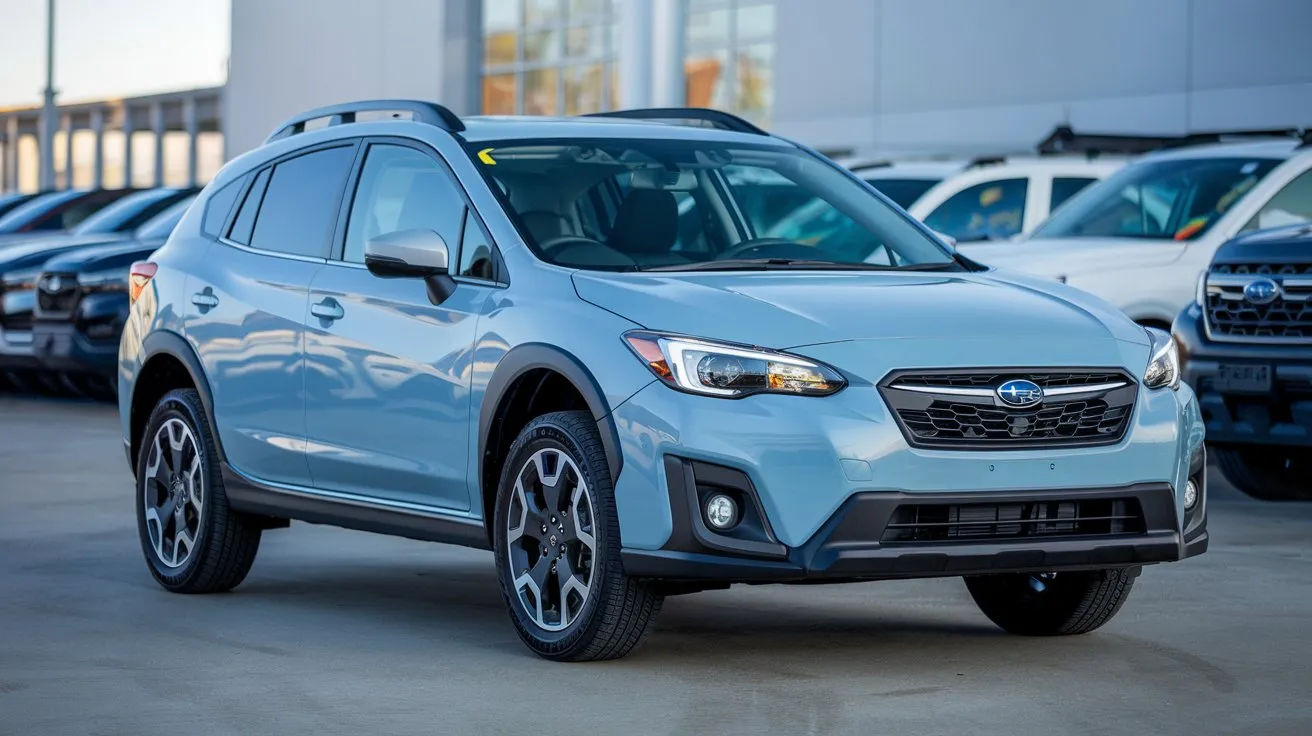Facebook Marketplace Car Scams: How Spokane Buyers Can Protect Themselves From Sophisticated Schemes

Facebook Marketplace has revolutionized how we buy and sell used cars, offering direct access to private sellers and competitive prices. However, this convenience has also created opportunities for sophisticated scammers who prey on eager car buyers. In just the past two weeks, Spokane Preinspection has uncovered and prevented two major Facebook Marketplace car scams, potentially saving buyers tens of thousands of dollars.
Understanding how these scams work and knowing how to protect yourself is crucial for anyone shopping for used cars online. This comprehensive guide will arm you with the knowledge to safely navigate Facebook Marketplace while avoiding costly fraud.
What are Facebook Marketplace car scams?
Facebook Marketplace car scams are elaborate schemes where fraudsters pose as legitimate car dealers or private sellers to steal money from unsuspecting buyers. These scams have become increasingly sophisticated, often involving fake business credentials, stolen vehicle photos, and pressure tactics designed to rush buyers into making deposits before they can verify the vehicle’s existence.
How these scams target used car buyers
Scammers specifically target buyers looking for high-value vehicles at below-market prices. They understand that the combination of a great deal and fear of missing out (FOMO) can cloud judgment, even among intelligent buyers. These fraudsters often focus on luxury vehicles like Mercedes AMG models, BMW M series, or other high-end cars that would naturally attract serious buyers willing to act quickly.
Why Facebook Marketplace attracts scammers
Facebook Marketplace’s design makes it an attractive platform for scammers. The platform allows anyone to create business-looking profiles, post professional-appearing listings, and communicate directly with potential buyers. Unlike traditional classified sites, Facebook’s social media integration can make scammers appear more legitimate, especially when they use stolen photos and create fake business personas.
How do Facebook Marketplace car scams work?
Understanding the mechanics of these scams is your first line of defense. Here’s how the two recent scams we uncovered operated, showing the typical pattern these fraudsters follow.
The fake dealer identity scam
Scammers create fake business identities, often claiming affiliation with legitimate local dealerships. In both cases we investigated, the fraudsters claimed to represent small dealers in Spokane Valley, saying they primarily operated trucking or transport businesses. This explanation was designed to justify why they had such high-end vehicles at low prices – supposedly these were “owner’s personal cars” being sold separately from regular inventory.
The first scammer established a fake business identity complete with a supposed office location. However, when we attempted to conduct our pre-purchase inspection, we discovered the address led to a small office park with no automotive business present. The company name the seller claimed to represent wasn’t listed in any building directories.
Too good to be true pricing tactics
Both scams featured luxury vehicles priced approximately 30% below market value. This pricing strategy is carefully calculated – low enough to generate immediate interest and urgency, but not so low as to seem obviously fraudulent. Scammers know that buyers who find these “deals” will feel pressure to act quickly before someone else claims the bargain.
Pressure and urgency manipulation
Once buyers express interest, scammers immediately begin applying pressure. In the second scam we prevented, the fake dealer claimed they were shipping the vehicle before receiving payment – an obviously suspicious practice. They even provided photos of a vehicle being loaded onto a car hauler, though the photos clearly showed a different car (missing emblems and featuring a brush guard not present in the original listing).
The scammer went as far as connecting the buyer with a supposed truck driver who claimed to be transporting the vehicle. When asked to provide a FaceTime call to verify the actual car being transported, the “driver” made excuses about not being able to stop for at least 10 hours, all while continuing to pressure the buyer to send funds immediately.
What are the red flags of Facebook Marketplace car scams?
Recognizing these warning signs can save you from becoming a victim of sophisticated car scams.
Pricing that seems too good to be true
If a vehicle is priced significantly below market value without clear explanation, proceed with extreme caution. While legitimate reasons for below-market pricing exist (urgent relocation, estate sales, etc.), prices 25-30% below market value should trigger immediate skepticism. Always research comparable vehicles to understand realistic pricing for the make, model, year, and mileage you’re considering.
Seller claims about dealer affiliations
Be wary of sellers who claim loose affiliations with established dealerships, especially when they explain this relationship as justification for having unusual inventory. Legitimate dealers have established processes for selling vehicles and typically don’t rely on Facebook Marketplace for high-value inventory. Call the dealership directly to verify any claimed relationships.
Shipping arrangements before payment
No legitimate seller arranges vehicle shipping before receiving payment. This is a major red flag that should end your consideration immediately. Real sellers understand that shipping arrangements come after payment processing and ownership transfer. Anyone claiming to have already shipped your vehicle before payment is running a scam.
Avoiding in-person inspections
Scammers will always find reasons to avoid in-person meetings or inspections. They may claim the vehicle is in transit, at a different location, currently “under repair”, or that they’re too busy to meet immediately. Legitimate sellers, especially those selling high-value vehicles, understand that buyers need to inspect before purchasing and will accommodate reasonable inspection requests.
How can you verify a Facebook Marketplace car seller?
Verification is your strongest protection against fraud. Take these steps before any serious negotiations.
Research the dealer’s physical location
Always verify claimed business addresses using Google Street View and local business directories. Drive by the location if possible – legitimate automotive businesses should have visible signage, vehicle inventory, and proper business facilities. Be suspicious of residential addresses or office parks claimed as dealer locations.
Verify business credentials and licensing
Check business licenses through your state’s business registration database. Automotive dealers typically require specific licensing that you can verify through state motor vehicle departments. In Washington, you can verify dealer licenses through the Department of Licensing website. Any legitimate dealer should be happy to provide their license number for verification.
Check vehicle history and documentation
Request the vehicle identification number (VIN) early in conversations and run a vehicle history report. Be suspicious if sellers are reluctant to provide VINs or if the VIN doesn’t match the vehicle photos. Legitimate sellers have nothing to hide and understand that serious buyers need this information. Also, take note of the vehicle location in the vehicle history documents (make sure it matches the area where the listing is located).
What should you never do when buying cars on Facebook Marketplace?
Avoiding these dangerous practices will protect you from most car buying scams.
Never send deposits without seeing the car
This rule has no exceptions. Legitimate sellers don’t require deposits to “hold” vehicles for reasonable periods while you arrange inspections or financing. Any request for money before you’ve physically verified the vehicle’s existence and condition is a scam. This includes wire transfers, cryptocurrency payments, gift cards, or any other non-reversible payment methods.
Never wire money to hold vehicles
Wire transfers and similar irreversible payment methods are favorite tools of scammers because they can’t be reversed once sent. Legitimate car transactions involve methods that provide buyer protection, such as cashier’s checks, financing arrangements, or escrow services for high-value transactions.
Never skip professional inspections
Even if a seller seems legitimate, professional inspections provide crucial protection for any significant vehicle purchase. Inspections not only identify mechanical issues but also verify that the vehicle actually exists and matches its description. This verification process alone prevents most scam attempts.
How does a pre-purchase inspection protect against Facebook scams?
Professional pre-purchase inspections provide multiple layers of protection that go far beyond mechanical evaluation.
Physical verification prevents most scams
The simple requirement that we physically inspect the vehicle eliminates the majority of scam attempts. Scammers typically abandon their schemes when buyers insist on professional verification because they can’t produce vehicles that don’t exist. This verification requirement serves as an excellent scam filter.
Professional inspection validates seller claims
Our inspection process verifies not just mechanical condition but also that the vehicle matches its description, has proper documentation, and exists at claimed locations. When sellers know that professional inspectors will verify their claims, dishonest sellers typically withdraw from negotiations rather than face exposure.
Independent third-party protection
Having an independent professional involved in the transaction provides objective verification that protects both buyers and legitimate sellers. Honest sellers welcome inspections because they validate their claims, while scammers avoid them because they expose fraud. This professional buffer creates accountability that scammers cannot fake.
Conclusion
Facebook Marketplace can be an excellent platform for finding quality used cars at fair prices, but protecting yourself requires vigilance and verification. The sophisticated scams we’ve recently uncovered show how far fraudsters will go to steal from unsuspecting buyers, but they also demonstrate how easily these schemes collapse when subjected to professional verification.
Remember: legitimate sellers want you to be confident in your purchase and will welcome reasonable verification steps. Anyone who pressures you to skip inspections, send money before seeing the vehicle, or make rushed decisions is likely running a scam.
By requiring professional pre-purchase inspections, you not only protect yourself from fraud but also gain valuable insights into vehicle condition and negotiating leverage for legitimate transactions. Don’t let scammers take advantage of your enthusiasm for a great deal – insist on verification and professional inspection before any purchase.
Schedule Your Inspection Now and protect yourself from both mechanical surprises and sophisticated scams in the Facebook Marketplace.
About the Author
John Coleman
Founder, Spokane Preinspection
I started Spokane Preinspection with one goal: make buying a used car easier, faster, and more fair. Every inspection we do puts real information in buyers' hands so they can make confident decisions.
Learn More About Us →Ready to Buy or Sell With Confidence?
Book a professional pre-purchase inspection and know exactly what you're dealing with.
Book Inspection

